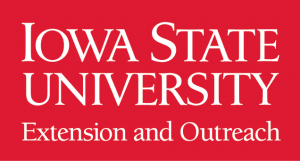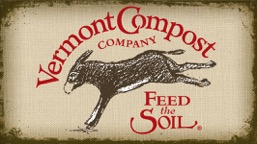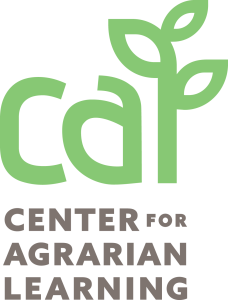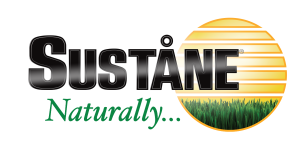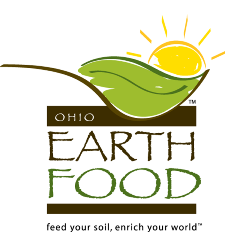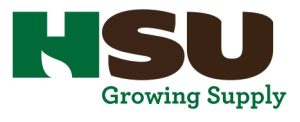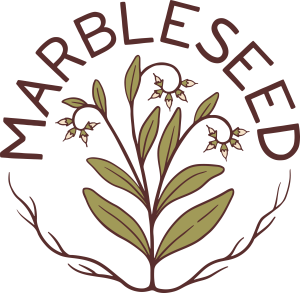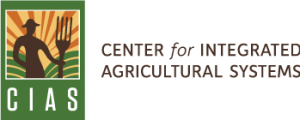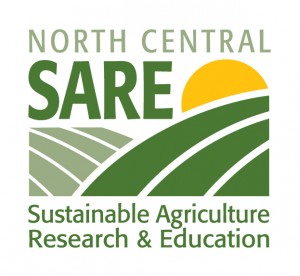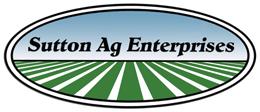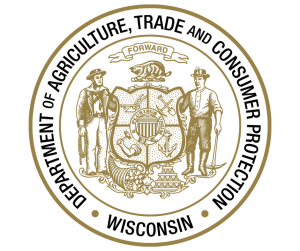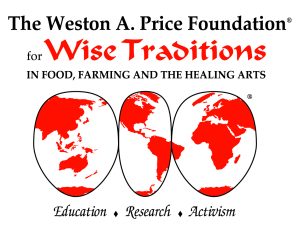Thank you for an amazing conference! See you in 2024.
January 26 & 27 | Online Everywhere
February 3 & 4 | In Person, Alliant Energy Center, Madison, WI
This producer-initiated conference is designed for advanced growers and attracts participants from throughout the Midwest and beyond. Participants who register by January 6 will receive a conference packet with handouts and swag through the mail BEFORE the online sessions. Those who register after January 6 may receive the packet before or AFTER the online sessions. Online session are on Zoom.
Esta conferencia respaldada por productores se basa en el intercambio de habilidades de agricultor a agricultor, tiene su sede en el Medio Oeste estadounidense, y ahora incluye a agricultores de todo el condado. Llame a Javiera Morales al 608-224-3704 para obtener asistencia con la traducción en español.
Qhov kev tuaj koom kawm uake es yog cov neeg tsim qoob loo-yog cov pib es siv cov tswv teb tej yam lawv paub kom lawv sib qhia, qhov chaw nov nyob rau ib cheeb tsam ntawm Midwest, thiab tam sim muaj cov tswv qoob loo los koom es nyob thoob plaws hauv cov zos county. Hu rau Chiang Rai Lor ntawm 608-709-0177 rau kev pab rau npe ua lus Hmoob.
“This is consistently the best vegetable production conference I attend year after year.” – Kellie Zahn, Stockbridge-Munsee Community
“Best Midwest conference, loaded with advanced growers sharing trade secrets. A definite level up to any organic vegetable grower.” – Caleb Trainer, Winterspring Farm
“I come to this conference with questions that are answered by the time I leave. This is now how I look forward to starting the season.” – Meg Kelly, High Meadow Farm
“The handouts alone are worth the cost of the conference. Side by side comparisons of farms of different sizes/contexts with VERY comprehensive prompts/questions.” – Evan Barry, Down River Farm
“I love this conference because it fills the ‘pro-level’ niche.” – Katie Bishop, PrairiErth Farm
Click to see full conference program
Sessions / Sesiones / Program cov Lus Qhia
Click to see full conference program
Cucumbers
|
Tomatoes
|
Vegetable sessions provide detailed production information from variety selection to post-harvest handling enhanced by photos from the field and specific to various scales. There are two farmer presenters, working at different scales, for each session. Participants receive handouts detailing the systems of each of the presenters, including everything from germination techniques to crop spacing, equipment used, disease and pest control, and more.
Functional Rotations in Tunnels
Producing the same crop every year in a high tunnel can lead to issues with diseases, pests, and nutrient imbalances. Learn about the ways that farmers are diversifying and succeeding using functional crop rotations in their high tunnels. Systems for both fixed and moveable tunnels will be highlighted in this session.
Sarah Geurkink, MI State University, MI
Genesis McKiernan-Allen, Full Hand Farm, IN
Soil Steaming
Disease and weed seed buildup has lead many growers to consider adding soil steaming to their high tunnel management toolbox. Soil steaming has the potential to control these problems while also minimizing the turnover time in between cash crops. Learn about the how’s and why’s from one of the experts on the topic.
Andre Cantelmo, Heron Pond Farm, NH
Social XLV – High Tunnels vs Cat Tunnels High-school-style Debate
High tunnels and caterpillar tunnels are different structures, each with their own limitations and strengths. Come listen in as four veteran farmers debate the merits of each. Then join the debate and/or the conversation! Arguing in the Caterpillar Tunnel affirmative are: Kat “Cat-tunnel” Becker and Liz “Gothic” Graznak.” Arguing in the High Tunnel affirmative are: Paul “Hoop Hoppin'” Huber and Mike “Black plastic” Bollinger.
Hosted by Sam Sam Oschwald-Tilton, UW Madison Extension and FairShare
Social XLV – Fringe Hoophouse Crops
What do you grow in your hoophouse when you need to switch it up from cucumbers, tomatoes, or salad greens? We will talk about any and all of the more fringe crops from ginger to kale to flowers. Bring your experience and ideas to share.
Hosted by John Hendrickson, UW Madison – Center for Integrated Agricultural Systems
Click to see full conference program
Melons
|
Cucumbers
|
Cabbage
|
Carrots
|
Vegetable sessions provide detailed production information from variety selection to post-harvest handling enhanced by photos from the field and specific to various scales. There are two farmer presenters, working at different scales, for each session. Participants receive handouts detailing the systems of each of the presenters, including everything from germination techniques to crop spacing, equipment used, disease and pest control, and more.
Favorite Mistakes
Though mistakes can really knock us down when they happen, learning from them can do so much to lift us up in the long-run. Three experienced farmers will share the stories of their favorite mistakes, how they felt at the time, and how those mistakes lead to positive or negative impacts on their farms. This session will also set the stage for the favorite mistakes story slam on Saturday.
Linda Halley, Gwenyn Hill Farm, WI
Beth Kazmar, Tipi Produce, WI
Dana Jokela, Sogn Valley Farm, MN
Cover Crop Varieties and Why They Matter
Are you ready to give up on winter rye because it is so hard to terminate? Or do you want more biomass from your spring rye stand? And what is the real difference between all those clover options? This session will focus on named cover crop varieties, what they can do, and why they might be worth the extra cost over the VNS (variety not stated) options. Hear from both a farmer using named varieties and a researcher working on developing more of them.
Kat Becker, Cattail Organics, WI
Lisa Kissing Kucek, USDA, Agriculture Research Service
Climate Change: Predicting Impacts and Making Plans
How do we expect the climate of the Upper Midwest to change in the next 30-40 years, and how can we begin to make adaptations on our farms today to prepare for the future? First learn about detailed climate projections for our region and how they may impact vegetable growers. Then hear from a farmer who recently completed a climate resilience plan for her farm through the Risk2Resiliency cohort series led by Laura Lengnick (Cultivating Resilience), the Land Stewardship Project, and University of Minnesota Extension. Climate reliance planning can go well beyond production and some of the plan elements may surprise you.
Natalie Hoidal, University of Minnesota Extension, MN
Jody Lenz, Threshing Table Farm, WI
Organic Vegetable No-Till
Have you wondered what would happen if you were to plant directly into a standing clover cover crop? Are you curious about landscape fabric and silage plastic and how they might help you reduce tillage and control weeds? This session will focus on two unique organic no-till systems in use by the farmer speakers and will include results from an on-farm trial looking at cover crop termination techniques for organic no-till.
Rue Genger, UW Madison, WI
Lincoln Fishman, Sawyer Farm, MA
Les Macare, Racing Heart Farm, MN
Attracting, Compensating, and Retaining Workers
Rare is the organic vegetable farm that can run on the owner’s labor alone. This session will present the results of a 2022 study of organic vegetable farm employees in the U.S. Data was gathered from nearly 200 employees through an online survey and several focus group discussions. The results include what attracts employees to a far, what they expect to be paid, and what keeps them coming back. This session will include time to discuss some of the more controversial results.
Sarah Janes Ugoretz, FairShare CSA Coalition, WI
Favorite Mistakes Story Slam
As a follow-up to the Favorite Mistakes general session on Friday, we will open the mic for as many mistakes as we can fit in an hour! Bring your funny, sad, uplifting, or tragic story to this supportive crowd of vegetable farmers who will cheer you on and thank you for sharing your mistakes so that others can learn!
Farmer to Farmer Round Tables
Topics include these and more
- Vegetable Varieties
- Preparing for Climate Change
- Reducing Tillage
- Farmer Resiliency and Health
- Weeds
Registration
Click to Register!
| Early Bird by December 15 | Regular by January 25 |
| Full Conference = $125 | Full Conference = $175 |
| Virtual Only = $50 | Virtual Only = $75 |
| In Person Only = $100 | In Person Only = $150 |
| In Person Friday Only = $65 | In Person Friday Only = $90 |
| In Person Saturday Only = $65 | In Person Saturday Only = $90 |
Conference packets with handouts and swag will be snail mailed to all VIRTUAL attendees.
- Register by January 6 to receive the conference packet BEFORE the VIRTUAL event.
- Those who register after January 6 may receive the packet before or AFTER the VIRTUAL conference.
Recordings
- All virtual sessions will be recorded and available to everyone who registers for the virtual event, whether or not they attend the session in real time.
- None of the in person session will be recorded.
Lodging
- Clarion Suites – Attached to Alliant Energy Center, 608-284-1234. Click the link to automatically apply the group rate to your reservation. Or call and identify yourself as part of the “Organic Vegetable Conference 2023.” The discounted group rate is $115 plus taxes. Rate includes hot breakfast in the morning and free parking.
- Home Stay – Connect with others offering or requesting a homestay in the Madison area on our Facebook Event page.
- Sheraton – 706 John Nolen Drive – Across from the Alliant Energy Center, 800-325-3535
- Holiday Inn Express – 601 John Nolen Drive – Across from the Alliant Energy Center, 608-709-5050
- Home2 Suites by Hilton – 2153 Rimrock Road – Behind the Alliant Energy Center, 608-949-9650
Scholarships / Becas / Nyiaj Pab
Hay becas de inscripción disponibles para productores inmigrantes y de comunidades cuyas raza y etnia tienen poca representación. La asignación de becas es por orden de llegada. La beca para la conferencia completa es de $135.
Con una beca, la tarifa de inscripción para los productores es: Conferencia completa = $40
¡Inscríbase para obtener una beca!
Thov rau npe tsis pub dhau Lub Ib Hlis Ntuj Tim 13.
Muaj Nyiaj Pab Them Nqi Rau Npe rau cov neeg cog zaub uas khiav teb chaws thiab cov neeg cog zaub uas los hauv ib pawg uas txawv haiv thiab haiv neeg tsawg uas tsis muaj neeg sawv cev txaus uas raws qhov leej twg xub tuaj, leej twg xub tau. Nyiaj pab rau tag nrho ob hnub sib tham yog $135.
Nrog qhov nyiaj pab, tus nqi rau npe rau cov neeg cog zaub yog: Tag Nrho Ob Hnub Sib Tham = $40
Rau npe thov nyiaj pab ntawm no!
Registration Scholarships are available for immigrant growers and growers from historically underrepresented communities (Native American, Black, Latinx, Hmong, etc.) on a first come, first serve basis. Full conference scholarship is $135. If you are unsure if you qualify for a scholarship contact claire.strader@wisc.edu.
With a scholarship, the registration fee for growers is: Full Conference = $40
Click to register with a scholarship!
Register > Enter Promo Code > 2023VegScholarship
Language Access / Acceso a Idiomas / Kev Siv Lus
- Llame a Javiera Morales al 608-224-3704 para obtener asistencia con la traducción en español.
- Llame a Chiang Rai Lor al 608-226-0300 para obtener asistencia con la traducción en miao.
- Habrá interpretación simultánea en miao y español para quienes lo necesiten.
- Nuestro compromiso es promover la agricultura orgánica entre las minorías y las familias de inmigrantes. Puede inscribir a un invitado adicional de la familia para que asista a la conferencia de manera gratuita.
La University of Wisconsin-Extension proporciona acción afirmativa e igualdad de oportunidades en educación, programas y empleo para todas las personas calificadas, sin tener en cuenta la raza, color, género, credo, discapacidad, religión, origen nacional, ascendencia, edad, orientación sexual, gravidez, estado civil o de paternidad, historial de detención o condena, o estado de veterano de guerra.
- Hu rau Chiang Rai Lor ntawm 608-226-0300 rau kev pab rau npe ua lus HMoob.
- Hu rau Javiera Morales ntawm 608-224-3704 rau kev pab rau npe ua lus Mev.
- Muaj kev txhais lus tib lub sij hawm ua lus Hmoob thiab lus Mev, yog xav tau.
- Peb muaj kev ruaj siab los txhawb kev cog zaub uas tsis siv chiv ntawm cov neeg tsawg thiab cov neeg khiav teb chaws. Koj rau npe tau rau ib tug neeg hauv tsev neeg ntxiv tuaj koom lub rooj sib tham dawb.
Lub Tsev Kawm Ntawv Qib Siab (University of Wisconsin-Extension) pab rau tsoom fwv kev pom zoo thiab ncaj ncees nyob rau kev kawm ntaub ntawv, kev pab cuam thiab kev ua hauj lwm rau tag nrho cov neeg tsim nyog ua tau tsis tas hais yog haiv neeg twg, xim tawv nqaij twg, poj niam txiv neej, kev ntseeg, cov neeg puas cev xws li tes taw, kev ntseeg ntuj, kev tuaj txawv teb chaws tuaj, kev poj koob yawm txwv, hnub nyoog, kev xaiv ntawm kev daj dee, kev xeeb tub, kev muaj txij nkawm los yog ua niam txiv, kev rau txhom los yog muaj txim raug kaw los yog ua qub tub rog.
The University of Wisconsin-Extension provides affirmative action and equal opportunity in education, programming and employment for all qualified persons regardless of race, color, gender, creed, disability, religion, national origin, ancestry, age, sexual orientation, pregnancy, marital or parental, arrest or conviction record or veteran status.
Co-Hosts
Sponsors / Exhibitors
Register to be an Exhibitor or Sponsor
or contact claire.strader@wisc.edu for information

